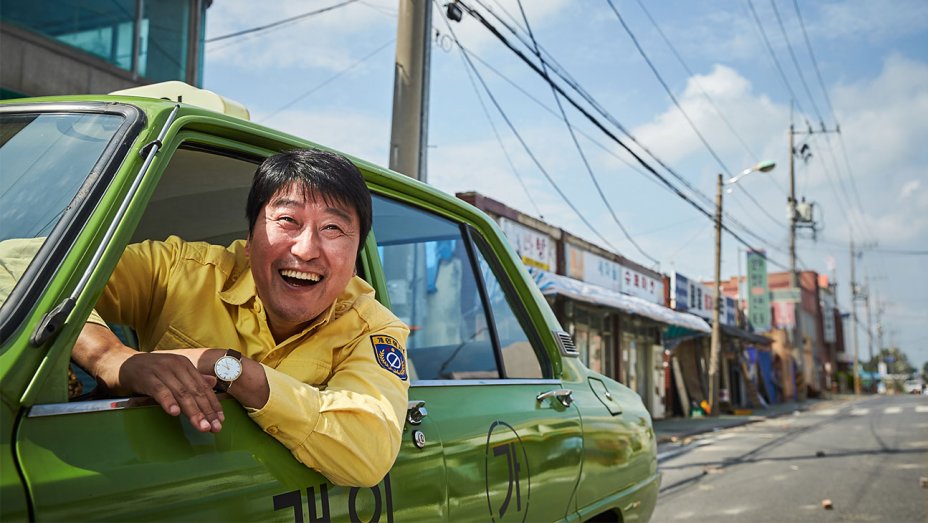
Evidently, two consecutive great years are quite uncommon, even for Korean cinema, particularly because films like “The Handmaiden” and “The Wailing” did not find their equals in 2017. This, however, does not mean that the level of quality fell much lower, since the country’s film industry seems to provide great films continuously, even despite their mainstream and Hollywood-like aesthetics, at least for the most part.
Furthermore, the international hype about Korean movies continued with productions like “A Taxi Driver” and “The Villainess.” Hong Sang-soo managed to shoot three films, with one of them standing out. Dae Hyung-lim shot a great indie film, while films like those on the rest on the list continued the legacy of the country in action/gangster thrillers.
Lastly, I took the liberty of including “The Truth Beneath,” which, although a 2016 film, I watched very late last year and did not manage to include in that list…
Here are the 10 best Korean films of 2017.
10. The Villainess (Jeong Byeong-gil)
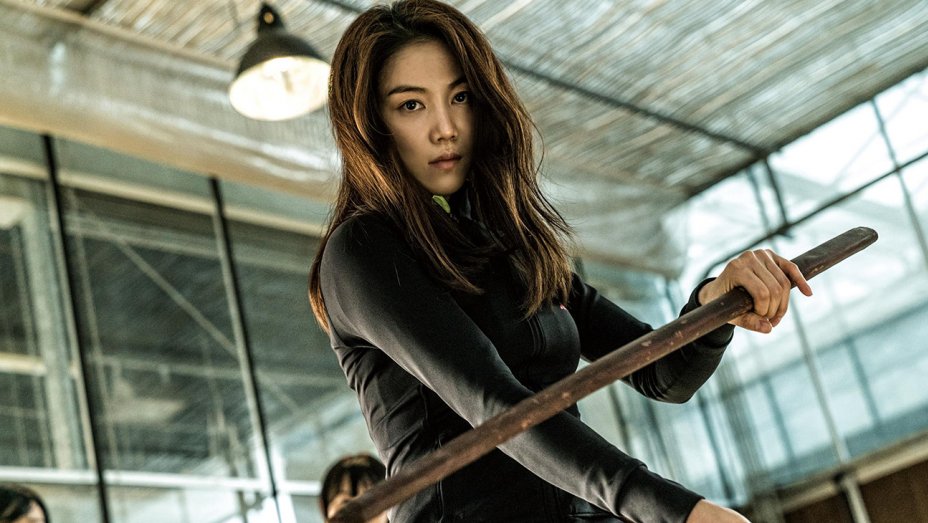
The movie starts with an extremely impressive action scene, where we watch an unknown assailant attacking swarms of enemies in a building, butchering, maiming, breaking, kicking and punching everyone who enters the scene, in a style identical to the first-person shooters in video games. After awhile, the camera is pushed back and the character is revealed to be a woman, while the video game aesthetics remain, as a third-person action this time.
After the end of this scene, and a disorienting cut including a flashback, we watch the main heroine escape a room in which she was secluded. Some seemingly surrealist scenes occur where she has to pass through a room where women practice ballet, another where they act, and another where they put on their makeup. In this sequence, the film transforms into yet another video game, this time in the category of surviving horror.
Awhile later, we start to learn about the real story of Sook-hee, the wife of a criminal who trained her to be a killing machine and left her pregnant. Now, the girl has to work for the government’s secret service as an assassin for 10 years, in order to avoid them having her and her daughter killed.
Up to this point, the action is frantic in the most elaborate way. Violence, martial arts, street fighting, guns and knives, and an exceptional combination of Park Jung-hun’s cinematography, Heo Sung-mee’s editing, and Koo Ja-wan’s sound make for one of the best action sequences ever to appear in cinema. This greatness continues to the rest of the action scenes in the movie that include car, bus and motorcycle chases and fights, and scenes occurring in places that range from private clubs to the outside of the buildings.
All of these are presented through another great combination of films that seems to feature the aesthetics and tactics of “Chocolate” and “The Raid,” and the aesthetics of “A Bittersweet Life” and “I am a Cyborg, But That’s OK” at the same time, with the latter deriving from the way Kim Ok-bin plays Sook-hee in the action scenes.
However, and this is one big “however,” the film’s rhythm falls very low during the hour or so where we learn the true story of “The Villainess,” and the blights that still torment her life. Another combination of films, this time including “La Femme Nikita” (which will be forever mentioned when the theme of the female professional killer comes up) and “Kill Bill,” keeps the story interesting, although a bit extreme at times.
Jeong Byung-gil does not avoid the reefs of the heartbreaking romance and the melodrama, where the evident effort at sentimentalism makes the majority of the parts between the action scenes almost tiring. Evidently, if one wants to shoot a blockbuster in Korea, he has to include some doses of melodrama, but in this case, they seem completely misplaced compared to the rest of the production’s aesthetics.
On the other hand, Jeong has the wisdom to interrupt them with a few well-placed action scenes, some of which even border on the style of 70’s Japanese exploitation, with the scene in the private club being the highlight of this tendency.
9. A Special Lady (Lee An-gyu)
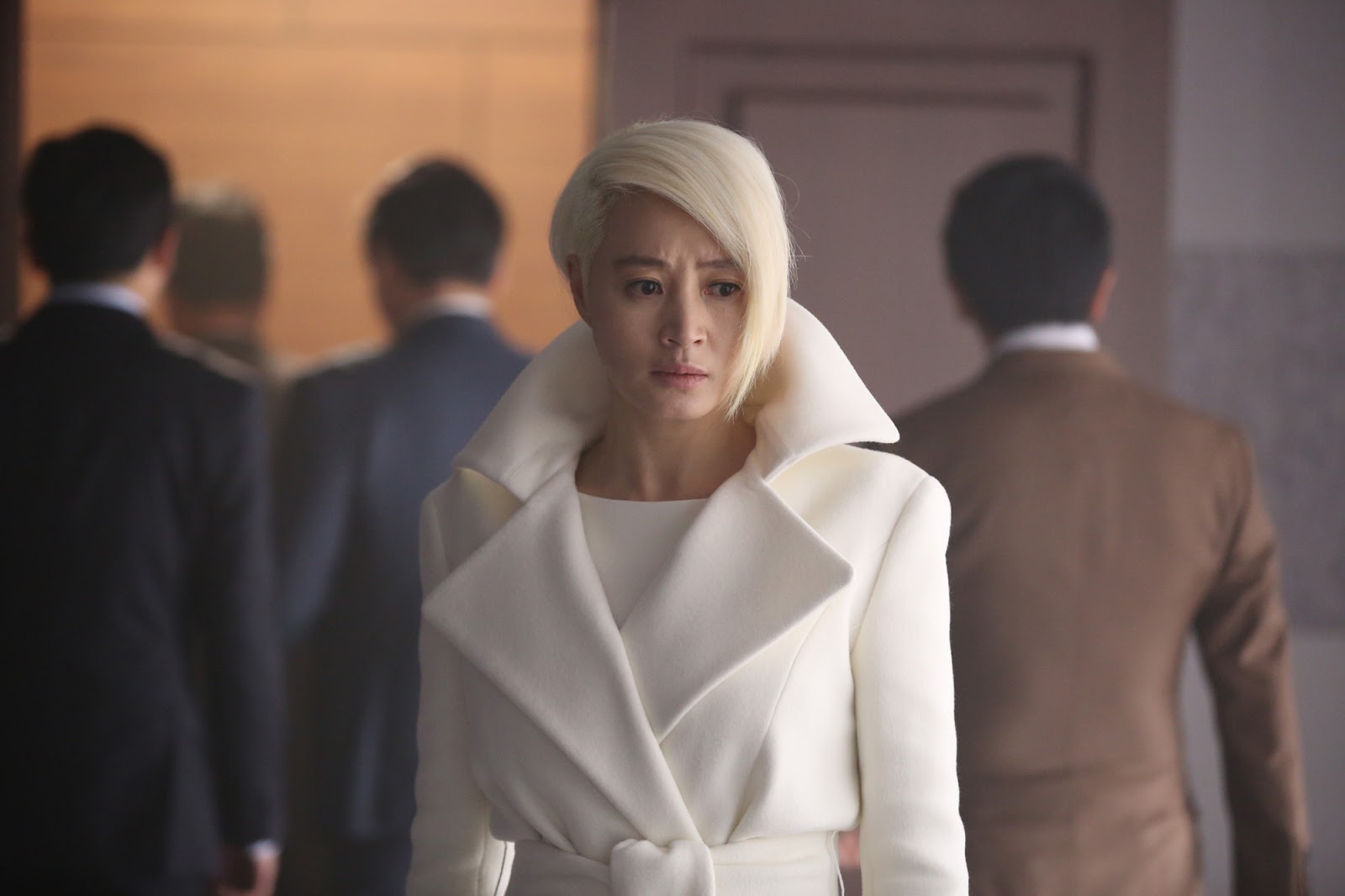
Hyung-jung, the number two in her crime syndicate, which “specializes” in extorting money and “favors” from people in power, dreams of retiring in order to spend the rest of her life with her son, whose existence is unknown to her colleagues. Sang-hoon is the main enforcer of the syndicate, a troubled man swamped in violence who is also in love with Hyun-jung. When Prosecutor Choi, who falls victim to the syndicate’s tactics, forms a plan to use Sang-hoon to exact revenge from Hyung-jung, all hell breaks loose.
Lee An-gyu directs another stylish gangster/crime thriller filled with impressive action, fast editing, great cinematography, and a protagonist (Kim Hye-soo) that combines sexiness with regality, only to have both of these shuttered as her enemies find their weak spots.
Nothing out of the ordinary here, but the movie is well directed, despite the somehow naive script, which fits, though, the general aesthetics of the film. Lee Sun-kyun is also great as Sang-hoon, a broken man struggling to decide where his loyalties lie, in a dog-eat-dog setting where everyone seems to have a weakness the rest of the world wants to exploit.
The film could be a bit higher on the list if only it was not so filled with cruel misogynism.
8. On the Beach at Night Alone (Hong Sang-soo)
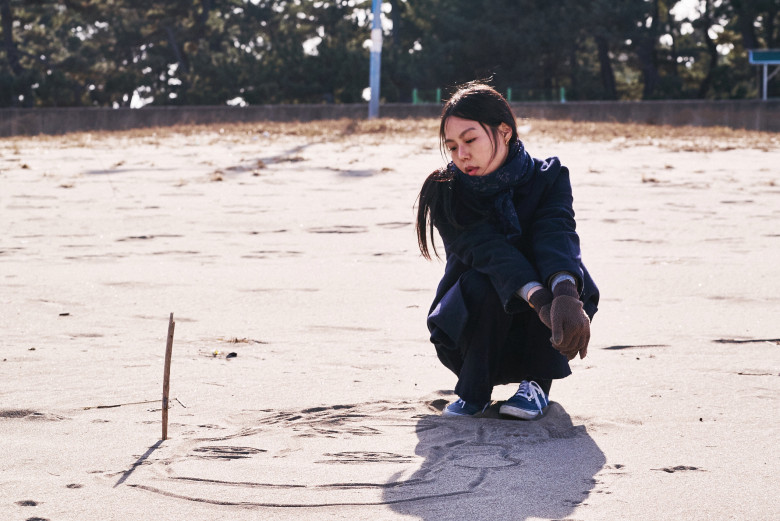
Yeong-hee is an actress who has left Korea at the end of an affair with a married director for Hamburg, where an old friend, Ji-yeong, is living. The fact that the latter also found solace abroad after her divorce and ended up staying seems to provide a very strong connection between the two women, although their interactions mostly feature Yeong-hee talking about her psychological situation.
After a point, end credits fall on screen and the film seems to start again, this time in the coastal town of Gangneung, where Yeong-hee meets a number of her friends and has a number of conversations over soju.
As I mentioned before, all of Hong Sang-soo’s themes and motifs are here, with the drinking, the long conversations in lengthy one-shots, the presentation of the weakness of man in front of women, the sudden zoom-ins, the unexpected humor and the great framing. Regarding the visual aspect, Kim Hyung-koo and Park Hong-yeol have done a great job in all of the aforementioned aspects, with the scenes in both the interiors and the exteriors being impressive, and the various scenes on the beach being the highlight of this tendency.
The focus on Kim Min-hee is, once again, intense, with her actually being present in all of the scenes, although her performance definitely justifies this fact, as she gives one of the best ones of her career. The moody behaviour, the sadness due to the break-up, the need for human interaction and at the same time the need to be by herself and ponder on her situation are all depicted eloquently, in a very difficult role.
7. Merciless (Byun Sung-hyun)
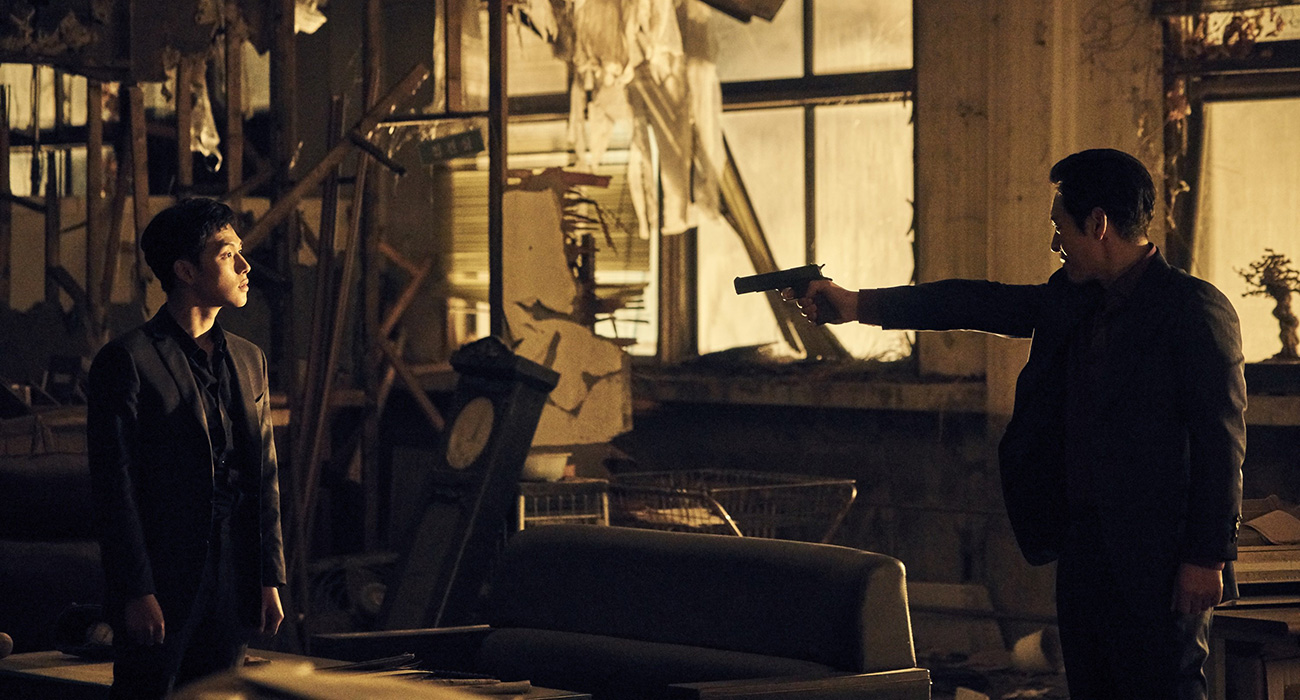
The labyrinth-like story begins with Han Jae-ho (Sul Kyung-gu), the “leader” of a prison, meeting a new inmate, Jo Hyeon-soo (Im Si-wan), who impresses him with his fighting abilities and his cockiness. Han recruits the young man, with the latter becoming one of his most faithful henchmen, even standing by him when he loses the throne from a bigger gangster than him. The two of them continue their collaboration outside of the prison, with Han bringing the young man into his syndicate.
The organization is headed by Go Byeong-cheol (Lee Kyung-young), who runs fishing company as a front to smuggle drugs in cooperation with the Russians. Soon, a number of truths are revealed. Jo is actually an undercover cop whose loyalties are jeopardized the more he hangs out with Han, whose boss fears his rising power and actually wants to kill him. And this is only the beginning in a spiral of treacheries, switching loyalties, and secrets that threaten everyone.
The fact is that Byun Sung-Hyun penned and directed an elaborate story, which retains the agony for the whole 120 minutes of the film, with a number of shuttering plot twists that are presented in a very timely fashion. However, the timeline, with the almost constant flashbacks, makes the narrative unnecessary complicated, and the film a bit difficult to follow. Furthermore, I felt that the story went a bit overboard in a number of instances, particularly during the ending, although this aspect actually fits the general aesthetics, which are not based on realism, but on entertainment.
In that fashion, the movie features impressive fighting scenes in a fitting brawler style, humor in the most unexpected moments, a rock-like soundtrack, plenty of violence, and an obvious effort to draw from Im’s impressive looks, all in accordance with the rules of mainstream films. The slapping/fistfight in the prison and the scene where everybody is laughing are great samples of the aforementioned, and are among the most impressive sequences in the film.
6. Master (Jo Eui-seok)
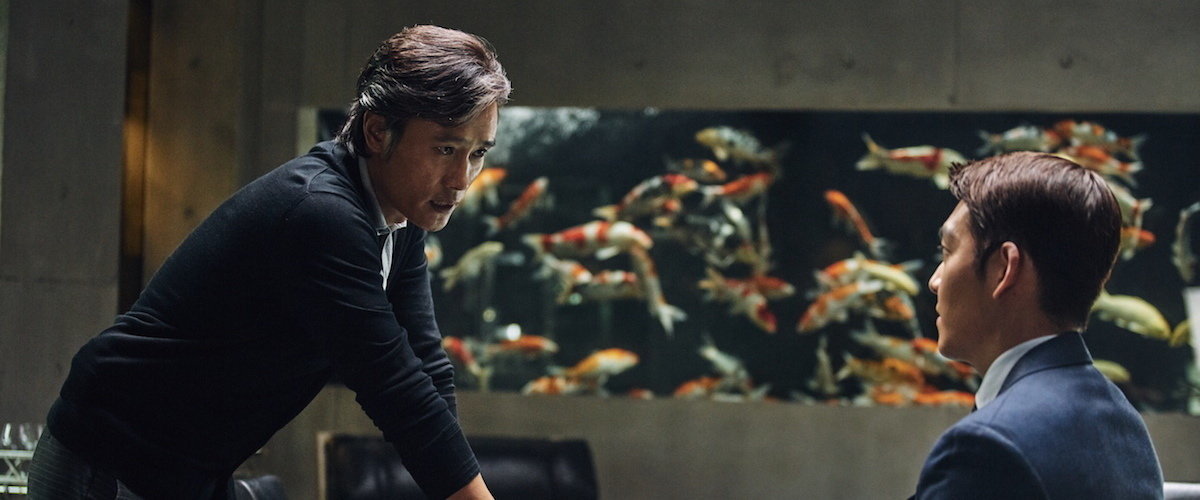
Jo Eui-seok directs and pens (along Kim Hyeon-deok) a very entertaining film that incorporates, apart from the aforementioned elements, a plethora of elements of mainstream cinema. In that fashion, the basis of the movie may be an agonizing thriller with many plot twists, but there are also car chases, gunfights, a martial arts scene, drama (although brief and not at all melodramatic) and very beautiful protagonists (both men and women) in different styles of appearance.
The fast pace, implemented expertly by Shin Min-kyung’s editing — particularly in the action scenes — and the impressive cinematography by Yok Yoo also stresses this trait, as the latter wraps the film in an impressive visual package that makes the production even easier on the eyes. The elaborateness in the technical department extends to Park Elhen’s production design, which presents interiors filled with luxury or rundown buildings with the same artistry, and Cho Sang-kyung’s costumes, which have the protagonists looking as good as possible.
Some excessiveness in the script does appear, particularly in the second part where Jo Eui-seok seems to have gone a bit overboard with the concept of the characters and the story, but even that hyperbole fits the general commercial aesthetics of the film, much like with Hollywood action blockbusters.
Despite being the “smaller” name of the three main characters, Kim Woo-bin as Park Jang-goon is the main protagonist of the movie. His performance is quite good as a man caught amongst powers bigger than him, particularly when he realizes that he is better off as a subordinate rather than the main man. Gang Don-won as Kim Jae-myeong is as cool as ever in the role of the determined hero, which seems to suit him to the fullest. However, I felt that his part, as a kind of father figure to Park, is a bit hyperbolic, particularly since the former is 28 and the latter 36.